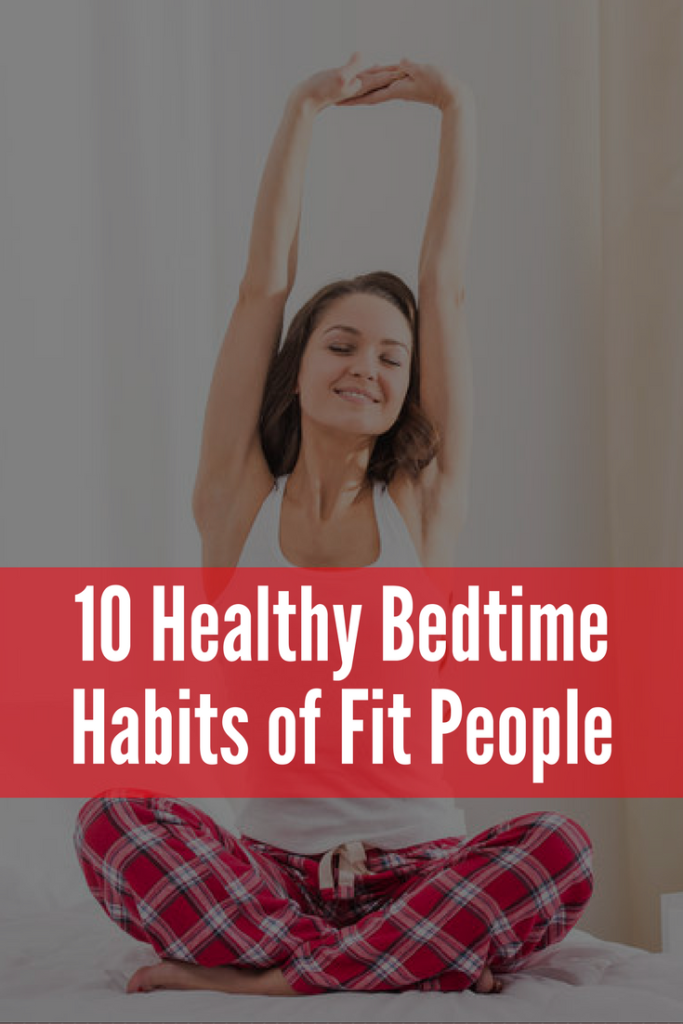
Start These Healthy Bedtime Habits
Sleep is one of the most important parts of our daily lives, so why do many of us neglect it? These healthy bedtime habits of fit people will help you rest up, get better sleep, and start improving your life!
Healthy bedtime habits we employ
Everyone seems to have advice on the impact a good night’s sleep can have on your health, both in the short-term and the long term. Yet, they don’t always seem to be able to tell you why this is and how you can actually achieve it — especially as a working professional.
What you’ll find in actually working towards achieving healthy and regular sleep patterns is that it really comes down to formulating good habits and a nightly routine — and sticking to it.
This doesn’t mean that there is a magical formula that will work instantly.
We’re all different individuals, and we may require different things to help us feel relaxed and rested. Still, there are some particular dos and don’ts of healthy bedtime habits that you can start with to get yourself on the road to creating your perfect nightly routine.
1. Do snack, but snack smart.
We all get the nighttime munchies — we can’t help it! You don’t have to cut out a late-night snack from your bedtime routine. All you need to do is choose what you eat wisely. For example, avoid foods that are high in salt and fat (like potato chips), and choose healthy options like fruit. Kiwi has actually been found to help adults fall asleep faster and longer if eaten about an hour before you go to bed.
2. Don’t expect a feather pillow to be the answer.
 You may like the feel of the soft cushy feathers, but believe it or not, it may be contributing to your poor sleep quality. The main function of a pillow is to keep your head and neck aligned as you sleep.
You may like the feel of the soft cushy feathers, but believe it or not, it may be contributing to your poor sleep quality. The main function of a pillow is to keep your head and neck aligned as you sleep.
If you’ve chosen the wrong option for your body type, chances are you’ve been missing out on some quality Zzz’s and leaving yourself feeling a bit stiff come morning.
The answer? Figuring out which type of pillow is right for you. Consumer Reports has a great guide on how best to choose a pillow that will help you get the sleep your body needs.
3. Do stretch or practice a yoga relaxation routine.
What better way to get rid of the day’s tensions you’ve built up in your body than a quick stretch or yoga session before bed?
You’ll increase your flexibility over time, which also helps limit injury and cramping, and at the same time create a trigger to help your body begin to ready itself for sleep. This is just a great overall healthy habit!
4. Don’t drink caffeine or alcohol too late.
This is easily one of the most important healthy bedtime habits! You may not think that coffee after work at 6 pm will have that much of an effect on your ability to fall asleep, or you swear by your nightcap before hitting the hay. The thing is, studies have shown that you should stop consuming caffeine six hours before bedtime and that alcohol can actually disrupt your sleep and contribute to worsening insomnia.
Your solution? Be mindful of the hour, and stick to the regime. Increased dependency on an alcoholic drink to fall asleep will create a vicious cycle of insomnia that will become more difficult to break. Cut yourself off three hours before heading to bed.
5. Do have some tea.
One way to help ease yourself out of the habit of a nightcap or late-night java is to look for a calming, caffeine-free tea.
There are numerous health benefits to teas, and you can even find some that will battle belly bloat while you sleep. Rooibus tea, from South Africa, has this benefit and many more. Naturally caffeine-free, it also helps fight insomnia and contains polyphenols that are anti-inflammatory and anti-oxidant rich — a much better choice than alcohol.
6. Don’t turn the TV (or your smartphone) on.
As tempting as it may be to catch up on your favorite TV series before you turn out the light, you should really avoid turning on the TV or using your mobile devices less than 30 minutes before you begin your bedtime routine. Studies show that watching TV disrupts your hormones and keeps you up later.
Instead, pick up a relaxing book that calms your mind or lightens your mood before going to sleep. You’ll be entertained without disrupting your sleep pattern. This is also one of those great healthy habits to instill in your children!
7. Do practice meditation.
 Maybe you like the sound of the TV to help you fall asleep. If this is the case, and you’re looking for a ‘noise’ option to help lull you into dreamland, try changing from TV land to sleep meditation.
Maybe you like the sound of the TV to help you fall asleep. If this is the case, and you’re looking for a ‘noise’ option to help lull you into dreamland, try changing from TV land to sleep meditation.
It’s not difficult, and often involves guided breathing exercises you can do lying down in your bed. Try out some YouTube options that are free to use. They will help you curb insomnia and fall into a deeper, more restful sleep.
8. Don’t think it’s too late to exercise
Perhaps you had to work late, and now you think you don’t have time to hit the gym for a short run. Do it. Even taking something as short as a 10-minute walk during your day or after dinner has shown to improve the quality of your sleep.
One study done by the Sleep Foundation in 2013 found that three-quarters of exercisers who participated in the poll had a very good or fairly good quality of sleep.
If you can’t seem to find the time to fit in a whole workout every day, try to simply carve out 10-15 minutes of cardio either after lunch or dinner.
9. Do practice gratitude.
Another way to unwind is to review the events of the day. One of the best ways to do this is to keep a journal. However, try to avoid focusing on the negative aspects of the day.
Instead, concentrate on the various things you are grateful for. Having an attitude of gratitude has been shown to improve mental health, which in turn can reduce your stress levels and leave you worry-free to fall asleep.
10. Don’t use the bedroom for work.
As much as you want to catch up on work emails before tomorrow morning, refrain from doing it from your bedroom. This also includes using all your mobile devices, such as laptops, phones, tablets, etc. Your bedroom should be used for sleep and sex only.
Limiting your bedroom to these uses will help your body maintain routine and recognize when it’s time to begin its relaxation phase.
Wrap-Up
When it comes to the do’s and the don’ts of healthy bedtime habits it’s time to take your sleep serious.
Start implementing a few of these pieces of health advice into your healthy routine and start to get better sleep and improve your overall health!
- 10 Good Sleep Habits for Fit People - May 26, 2023


